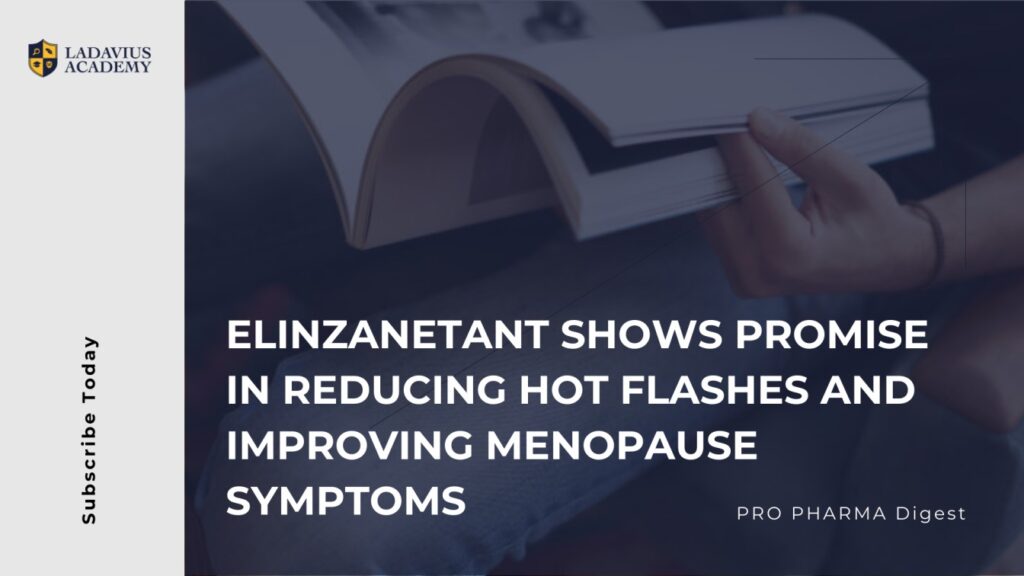Bayer presented promising data from their Phase III OASIS clinical trials on Elinzanetant, a potential new weapon in the fight against hot flashes and other menopause symptoms. Elinzanetant is a non-hormonal medication designed to address moderate to severe vasomotor symptoms (VMS), the technical term for hot flashes.
The trials, OASIS 1 and 2, were resounding successes. Elinzanetant not only met all its primary endpoints, but significantly reduced the frequency and severity of hot flashes compared to a placebo after just 4 and 12 weeks of treatment. This translates to potentially quicker relief for women experiencing these disruptive symptoms. The benefits of Elinzanetant extended beyond just hot flashes. The trials also showed improvements in sleep disturbances and menopause-related quality of life in participants, suggesting a more holistic approach to managing this phase of life.
Elinzanetant’s Unique Mechanism of Action
Unlike hormone replacement therapy, Elinzanetant works by targeting specific neurokinin receptors in the brain. During menopause, a decrease in estrogen levels leads to changes in the hypothalamus, a region involved in regulating body temperature. These changes can trigger hot flashes. Elinzanetant may help regulate these changes and prevent the cascade of events leading to hot flashes. This targeted approach offers a potential explanation for the drug’s effectiveness and its non-hormonal nature.
Safety and the Path Forward
The trials also reported a favorable safety profile for Elinzanetant, with headaches and fatigue being the most common side effects. This is an important consideration for women seeking treatment options, particularly those who may not be able to take hormone replacement therapy. Based on these positive results, Bayer plans to submit applications to health authorities for marketing authorization of Elinzanetant. If approved, Elinzanetant could become a valuable new tool for managing hot flashes and improving quality of life for women experiencing menopause.
Addressing a Significant Unmet Medical Need
Hot flashes are a common and disruptive symptom for many women during menopause. Up to 80% of women experience hot flashes at some point, with some suffering for years. These episodes can significantly impact sleep, daily activities, and overall well-being. Currently, there are limited approved non-hormonal treatment options available. Elinzanetant has the potential to be a game-changer for millions of women by providing them with a safe and effective alternative.
Beyond the Study: The Broader Impact of Menopause
The article delves deeper into the design of the OASIS trials and the ongoing clinical development program for Elinzanetant. It also sheds light on the significant impact menopause has on women’s health. By 2030, the global population of women experiencing menopause is projected to reach 1.2 billion. Menopause is a natural transition, but the hormonal decline can lead to various symptoms that can substantially affect a woman’s health, quality of life, and even work productivity. Addressing these symptoms is key to maintaining well-being during menopause.
The article concludes by highlighting Bayer’s commitment to women’s healthcare and their efforts to develop innovative solutions for menopause management. Elinzanetant represents a significant step forward in this area, offering hope for millions of women experiencing the challenges of menopause.
Posted May 2024.
Subscribe to our newsletter
Personalised by your preferences, subscribe to our newsletters to get the best of the Pharmaceutical Industry news in your inbox.
